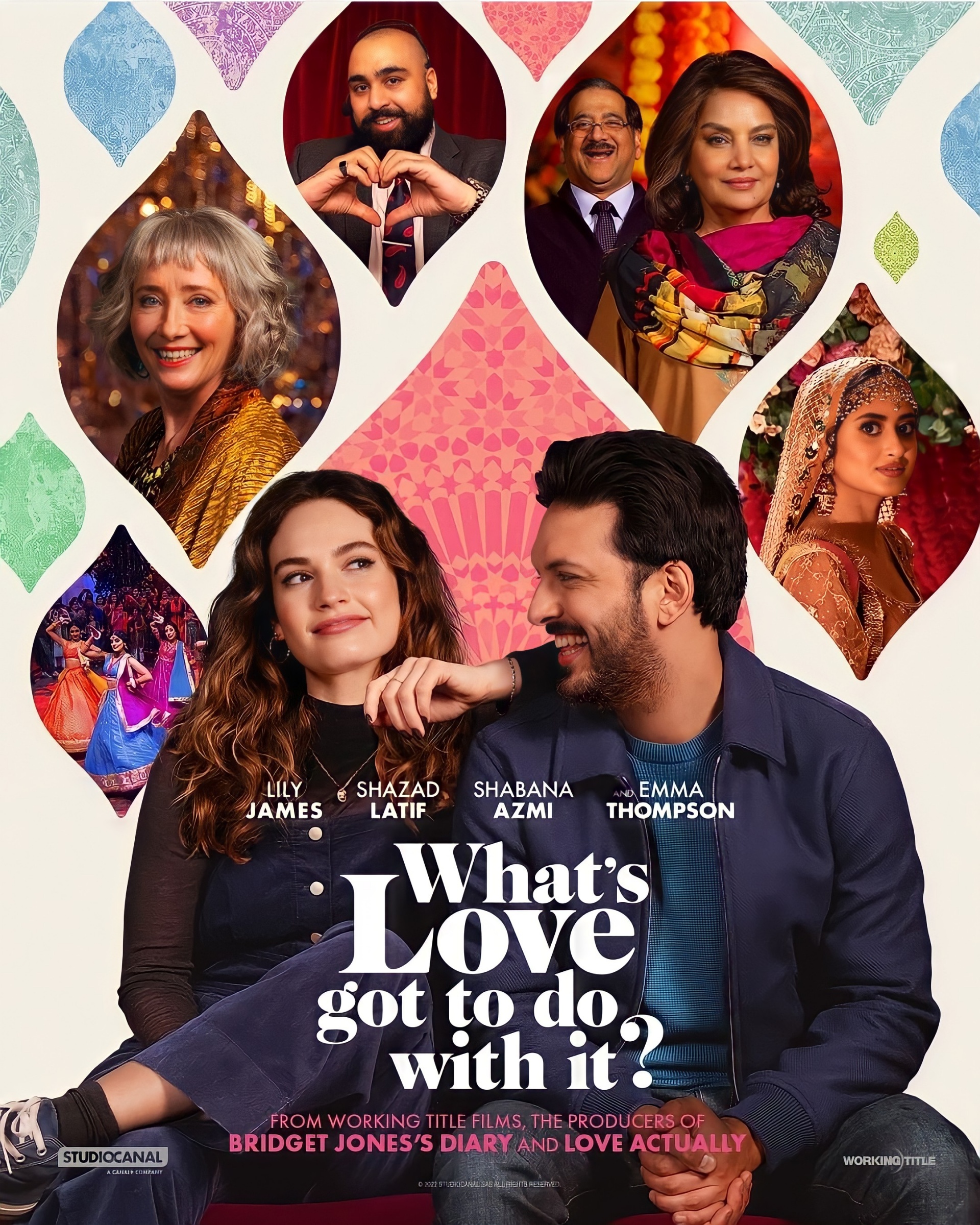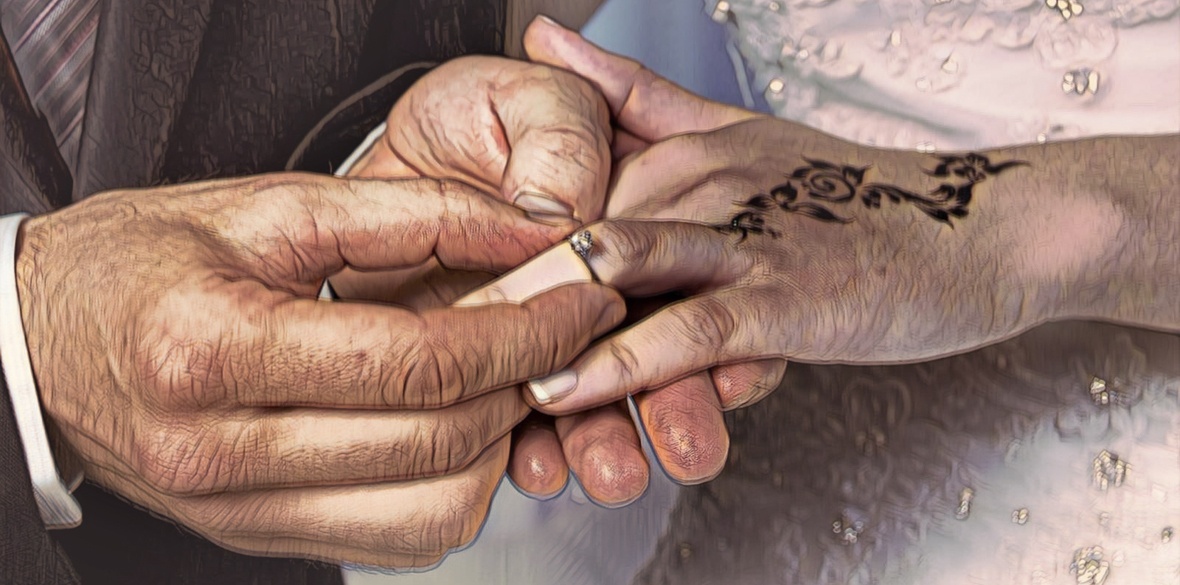This is the last article you can read this month
You can read more article this month
You can read more articles this month
Sorry your limit is up for this month
Reset on:
Please help support the Morning Star by subscribing here
“ARRANGED” marriage is having its PR rebrand moment, thanks to Jemima Khan whose debut production, What’s Love Got to Do With It? has played a major role in refashioning arranged marriage as “assisted” and seemingly consensual, allowing millennial Muslims and many others from minoritised, diaspora backgrounds to have the “best of both” cultures.
Championed as the renaissance of the British romcom, in our post-Brexit reality, the film is a marriage made in multicultural heaven. It starts out as a diaspora love story, representative of diversity, which follows a middle-class, British Muslim Pakistani family as it embarks on a quest to find the perfect wife for its son, 32-year-old medical doctor Kasim “Kaz” Khan, our male protagonist.
Yet the film plays into cultural relativism; dire “swipe” dating-app culture has become demoralising, “Western” courtship isn’t leading to long-term commitments, and 42 per cent of British marriages end in divorce — so who are we to judge?
However, drawing false equivalences downplays the often invisible yet deeply insidious coercive control wielded in many so-called “arranged” marriages. Thousands of young people enter into such unions every year in Britain, many of them hailing from the British Pakistani community, where 55 per cent are married to their first cousins, often to appease older generations and conform to a culture which still frowns upon so-called “love marriages” where the couple themselves initiate their courtship without familial involvement.
In its attempts to demystify negative stereotypes, What’s Love Got to Do With It? lacks nuance. The mail-order bride, Maymouna, is not docile and demure, but as a testament to her “liberation,” she enjoys a whisky and coke and is an aspiring human rights lawyer to boot.
The bride has the final say, breaking the fourth wall to mock the audience for expecting her “head on a pitchfork” for ending her marriage. This push for a “brown girl-boss” fails to recognise that 90 per cent of women in Pakistan are victims of domestic abuse. This figure transcends socio-economic status and the rural-urban divide.
Moreover, the Khans claim to have their children’s best interests in mind, despite ostracising their daughter for her “love” marriage to a non-Pakistani man, who ironically is the only character to refer to sacred Islamic teachings regarding mercy and compassion at the heart of Muslim matrimony.

Ultimately, the marriage of our main character, Kaz, is short-lived, ending in divorce when it emerges that his bride had been “insisted not assisted” into giving her consent. In a culture where marriage is a bond between two families, not just two people, saying no can lead to stigmatisation and isolation, especially for women.
The fear of such ramifications exacerbates the pressure they face. Since much of this backlash is “invisible” in the form of coercive control, which can include threats of intimidation, bullying and gaslighting, it often goes ignored. What’s Love Got to Do With It? chooses to stay silent on this stigma by providing a glossy, glamorous veil to cloak the whole affair.
At the heart of it, the plot would not have been possible had the male protagonist, Kaz, not been a “nice,” calm and collected gentleman. In our era of “mincel” (Muslim incel) toxicity triumphed by Andrew Tate, this is an extraordinarily rare and rather exceptional message to send.
Would the marriage have been dissolved had Kaz not been so understanding of his wife’s affair with her former lover in Pakistan?
Moreover, if the gender roles were reversed and had Kaz been a second-generation, British Muslim woman who’d had a marriage abroad with a cheating husband, how likely would it have been for her to succeed in her right to an Islamic divorce?
These are the sorts of uncomfortable questions that remain unspoken. But this is a reality for millions of women.
This is where Joyland, the Cannes film festival-winning, gritty transgender love story about a joint family in inner city Lahore, rises to the mark.
Joyland is a bittersweet exposé, emotionally crafted and subtle yet strong in its message; it doesn’t shy away from the crux of the issue, that nothing will change until we dismantle the archaic mores holding the very institution of insisted — so-called “arranged” — marriages intact.
Our main character here is Haider, another “nice,” yet weak man, who is struggling with his sexuality in a socio-economic setting that has his hands tied. Haider is a married man who falls madly in love with a trans dancer when he secures a job in an (erotic) theatre dance troupe.
He too succumbed to the pressure of an arranged marriage, which through a series of events the film acutely depicts, leads to his plucky and ambitious wife, Mumtaz, ending her life while heavily pregnant with the clan’s only male progeny in a household full of girls — an act that has Haider’s male relatives cursing Mumtaz at her wake for “murdering” their heir.
Joyland isn’t a celebration of queer love the way censor boards in Pakistan would lead us to believe. In its raw depiction of what life is like for millions of people, Joyland defiantly dances in a world where What’s Love Got to Do With It? is too afraid to push against what people will say.
Joyland holds the mirror up to these hypocrisies, showcasing the misery embedded within traditional cultural practices we speak little of, lest we rattle certain quarters far too engrossed in denial and false equivalence for sake of saving face.
Ultimately, there is no guarantee that any union will be “death do us part,” but insisting on an “arranged” marriage by pressuring someone into a lifelong commitment and painting it out as a fully autonomous choice is by no means comical. It is criminal.
Dr Maryyum Mehmood is an academic and policy professional working in the VAWG sector. Follow her on Twitter @marymood.











